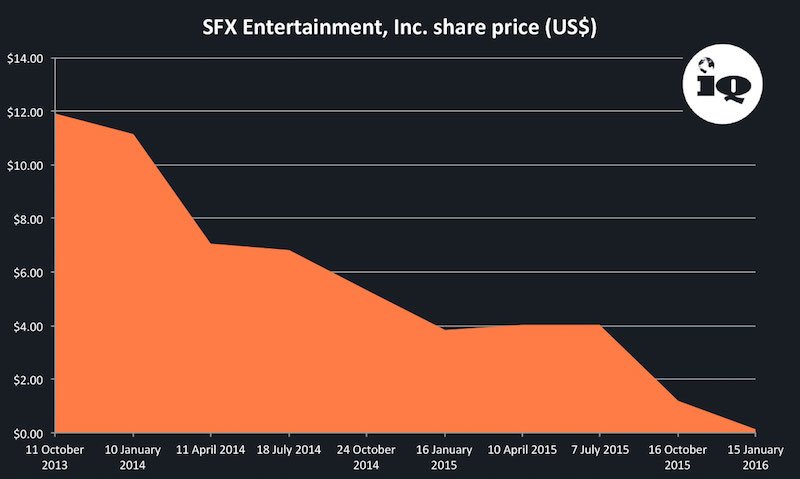There’s been plenty written already of Robert Sillerman’s much-maligned reign as the CEO of SFX Entertainment, particularly the frivolous shopping spree where he quickly acquired different companies around the EDM world.
The SFX Saga Continues...

Many of SFX Entertainment’s largest creditors are SFX-owned promoters awaiting deferred purchase price payments.
The document reveals that 11 of SFX’s 13 largest ‘non-insider’ creditors – that is, ones which aren’t associated with the company’s founder and former CEO, Robert FX Sillerman – are the owners of some of the many companies purchased by the now-bankrupt EDM promotion giant since its founding in 2012.
SFX currently lists assets of $661.614m and debts of $490.236m. Sillerman and funds controlled by him own 37.8 per cent of the company’s common stock.
This means that a large proportion of SFX Entertainment’s creditors are still deeply involved in the company – and have a vested interest in seeing it continue in one form or another.
The largest unsecured creditor is Dutch EDM firm Alda Events, the promoter behind Amsterdam Music Festival and The Flying Dutch, which is owed $23.6 million.
SFX also owes $10 million to Made Events, creators of Electric Zoo in New York, Electric Zoo Mexico City and Electric Zoo Beach Tokyo. Chicago promoter React Presents, which organises Summer Set Music & Camping Festival and Spring Awakening, and also owns Clubtix, Inc., is out $5.8m.
Principals at Australia’s Totem OneLove Group, which promotes Stereosonic festival, are owed $10.7m.
Hoeksema Holdings, run by Theo Hoeksema, the former CEO of Paylogic, is owed $2.5m.
Trade creditors are also facing a shortfall, with those listed on the top 40 creditors list including private air-charter firm VistaJet (owed $1m), Epic Tents of Georgia ($442,650), PRS for Music ($327,680), NYC-based app-builder Postlight ($315,000), Front Gate Ticketing ($301,400) and event medical services company CrowdRX ($269,600).
SFX filed for bankruptcy on Monday in a ‘restructuring support agreement’ which wipes over $300m in debt from the company’s books.
It floated on the New York Stock Exchange in October 2013 for an initial public offering of $13 per share; by the end of January 2016 its share price stood at 13¢.



























